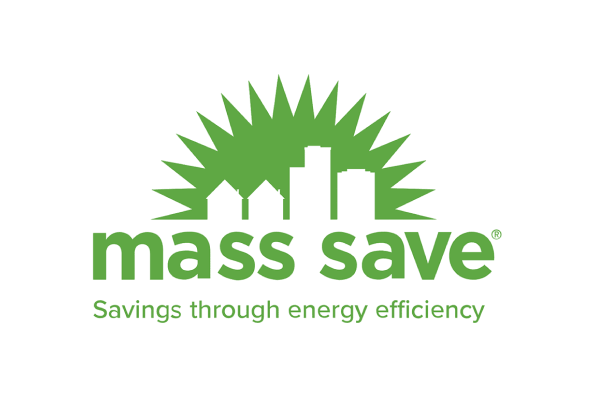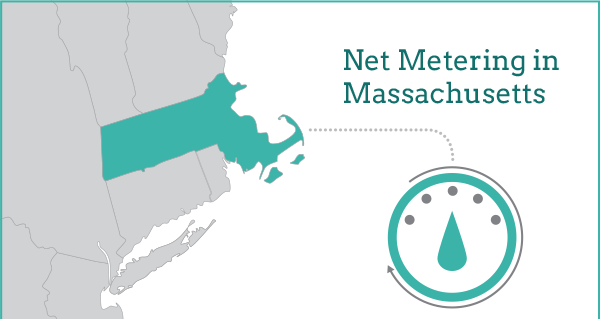Key Massachusetts Commercial Solar Incentives & Rebates
Choosing commercial solar systems in Massachusetts offers numerous advantages. You can expect tremendous tax exemptions and zero percent financing as well as zero upfront costs when choosing solar. Considering the state’s high electricity cost, you can expect to save more for every kilowatt-hour produced by your solar panels.
State Solar tax exemptions
Tax credits and rebates are very much available for going solar in Massachusetts. There are two tax exemptions available, a state tax credit and cash payment per kilowatt-hour generated. This can also be combined with the 30% federal tax credit. This means that you pay zero dollars on your solar and geothermal systems, lower your upfront cost, and still get net metering for excess generated energy.
Net Metering in Massachusetts
The net metering policy in Massachusetts according to section 18.03 of the Code of Massachusetts Regulations for the Department of Public Utilities states that “Each Distribution Company shall provide services to Customers and Host Customers necessary to permit Net Metering, including those related to interconnection, metering, calculation, and billing of Net Metering Credits”.
This means that the power company gets to calculate and save your excess energy generation. While unlike some states you cannot convert your excess energy to cash payment, net metering in Massachusetts allows you to regain your stocked-up energy when you need it. So, you can use your saved-up electricity for winter seasons without having to worry about your electricity bill going sky-high due to the lack of solar energy.
Solar Massachusetts Renewable Target (SMART)

Solar Massachusetts Renewable Target (SMART)
SMART is one of the Massachusetts solar programs that offers cash incentives for residential and commercial solar projects throughout the State. This means customers who install a solar panel get paid per kWh generated. The exact amount of money paid to customers is calculated based on the size of your solar panel, your utility company, and your capacity block. The SMART program also offers additional money for low-income customers or more complex system characteristics like battery storage or a solar tracker.
Key aspect of SMART
“The SMART program is a declining block incentive program. This means that the more people use the program, the less money is paid out. Also, Incentive payments from the SMART program currently only last for 10 years after installation”
Other MA Commercial Solar Incentive and Savings
According to experts and the state’s Department of Energy, Massachusetts’ technical solar potential is 506GW which is 15 – 18 times greater than what is required for sustainable state-wide clean energy by 2040. With the state’s plan for net zero greenhouse gas emissions by 2040 and its desire to help residential and commercial customers achieve said goal, Massachusetts offers great incentives and savings for businesses and individuals choosing solar.
Federal Solar Investment Tax Credit (ITC)
The federal solar investment tax credit also known as the residential clean energy credit is available to most states and offers a straightforward benefit. The ITC offers a 30% tax discount on your solar panel installation as a tax credit. This means you can get 30% back in tax credit of whatever you spent on your solar installation when you file your federal returns. If you spend $29,970, you can expect back $8,991. While there is no maximum limit on how much tax discount you can get, if the discount is more than you owe in taxes, you can roll over the excess into the following year.
Energy Efficiency Loan Program

Mass Save Loan Program
Several energy efficiency loan programs can help you finance your solar installation. One such program is The Mass Save Program which offers a special opportunity for individuals looking to make energy-efficiency upgrades to their home. With their recent partnership with Entreprise Bank, the Mass Save Heat Loan Program offers zero percent financing up to $50,000 to assist eligible customers. Check out the Heat Loan Guide for guidelines on accessibility, how to apply, and requirements.
Massachusetts State Energy also offers a zero percent financing option for individuals and businesses up to $100,000. Loans can be paid back within 7 years with no extra cost.
Request a Commercial Solar Proposal for Your Business
Tax Exemptions for Renewable Energy Equipment
Sales and Use tax exemption
There is a Sales and Use Tax Exemption for Solar and Geothermal Systems in Massachusetts. This ensures that purchasers of solar systems are exempt from paying sales tax on their purchases. Massachusetts normally charges a state sales tax of 6.25%, and this means a $24,000 solar equipment would typically attract $1500 in tax. However, due to this tax break, customers get to save more, especially for more expensive and complex projects.
Property tax exemptions
Just like the state of Connecticut, Massachusetts also offers a 20-year property tax exemption for solar or wind power energy systems. This prevents your property tax from going up due to the additional value of your solar or wind energy system.
Additional Local Incentives and Rebates
There are several local incentives available in various cities within the state of Massachusetts. For example, Boston offers additional rebates for its residents. Again, with its renewable energy goals before 2040, the state of Massachusetts will offer state and local incentives and rebates to achieve its goal. This makes solar energy cheap and affordable in comparison to the State’s high electricity cost. Investigate within your city to find out what local incentives and rebates are available.
Net Metering in Massachusetts

Net Metering in Massachusetts
You have the possibility of spending zero dollars and zero kWh with Massachusetts net metering. The state has a net metering policy which allows you to send excess solar electricity to the Grid. This offer is available for privately-owned renewable energy systems up to 2,000 kW.
RES Program Tariffs
Netting Tariff
Netting is favorable for residential and commercial properties hoping to spend zero dollars on energy. Net metering in the Bay State allows you the potential to save your extra energy with your utility provider and spend it whenever you want. Surpluses are calculated at the standard retail rate per kilowatt-hour (kWh). However, the technical requirement for net metering is based on the utility company you use.
Buy All Tariff
In Massachusetts, the transition to solar energy comes with a unique opportunity known as the buy-all tariff. This allows solar system owners to make the most of the excess electricity generated or sell off the entire generated energy. This tariff option sets a predetermined dollar amount for energy generated, typically fixed for 20 years. This tariff also includes additional energy credits available for low to moderate-income individuals and residents of state-identified “distressed municipalities,” broadening the scope of solar energy adoption across different economic demographics.
Understanding the Electric Utility Landscape of Massachusetts
The national electricity average rate in the United States is 16.21 cents per kWh, Massachusetts paid as high as 28 cents in 2023. This makes the Bay state the state with the third highest electricity rate in the country. Over the years, the state has seen a significant rise in tariffs, mostly for residential consumers. However, considering the State’s decarbonization goals by 2040, there are several solar incentive programs available for businesses and residents seeking to go solar.
The Bay State has been a deregulation state since 1998 which has kept the utility rates flexible and always fluctuating. This means most people in the state have a choice of which electricity company to choose based on their rates and other factors. The state also has a clear guideline that ensures suppliers adhere to specific transparency regulations helping consumers make informed decisions concerning energy consumption.
Electricity rates in Massachusetts
| Utility | Commercial Rate (cents per kWh) | Valid through | Residential rate (cents per kWh) |
| National Grid | 18.823 | January, 2024 | 18.213 |
| Eversource – NSTAR | 26.162 | January, 2024 | 17.251 |
| Eversource – WMTCO | 25.113 | January, 2024 | 15.845 |
| UNITIL | 22.076 | January, 2024 | 21.206 |
Decrypting Supply and Delivery Rates
Delivery rate
Delivery rates are charges paid for the transmission of electricity from the power generation facilities to homes and businesses that need it. And, they typically constitute the major portion of your electricity bill. This consists of the cost of upkeep, power lines, transformers, grid management, and other essential infrastructure costs. Because Massachusetts is a deregulated state, the delivery rates are subject to the supplier you use as well as regulatory decisions and legislative adjustments.
Supply rate
Supply rate unlike delivery rate is what you pay for the energy you consume which is often the smaller cost. Supply rates have no profit markup as they mirror the direct cost of purchasing or generating electricity. In 2023, Massachusetts had its highest supply rate yet which was as high as 28 cents per kWh, over 50% more than the national average cost.
Impact on Solar Energy Decisions
Massachusetts offers a variety of solar incentives, flexible utility rates, state tax exemptions, and zero percent financial assistance programs. The impact on solar energy decisions will be influenced by taking advantage of these opportunities and it can vary based on different factors. Your understanding of the current rate, policies, and structures of electric utilities in the Bay State will also help determine the cost-effectiveness of solar energy decisions. There is also the property value impact of solar decisions that could benefit you greatly. Interested in exploring the impact solar energy decisions can have on your business? Speak to our experts and get a free estimate of your savings plan.
Are Solar Panels Worth It in Massachusetts?
Solar panels save up to over 3 times the average cost of installation in the course of their lifespan with the potential to reach $45,000 in savings aside from the initial cost of installation. However, while not all properties are equipped to handle a solar system, we recommended getting in touch with a solar company like Commercial Solar for a property assessment to determine if your home or business is a good fit.
Solar Energy Adoption in Massachusetts
Ranked amongst the top 10 states for total solar capacity installed, Massachusetts has experienced astronomical growth with solar energy adoption systems in the past decade alone. According to the SEIA 2023 report, the Bay State has enough solar installed to power over 700,000 homes with a solar market value worth $9.9 billion. In 2022 alone, the state invested over $658 million, a sheer testament to how much rebates, incentives, and programs are available to commercial and residential solar owners. This is also part of the state’s goal to reduce its reliance on fossil fuels by 75% by 2040.
Why choose Commercial-Solar.org for your commercial solar project in Massachusetts?
With an accumulated 2 decades of satisfying commercial solar needs and 40 successful commercial solar projects across various sectors, Commercial Solar has created a system that achieves the following for businesses looking to go solar:
- Removes all pain points and barriers to solar ownership
- Ensure solar installations are 100% paid for by incentives with no out-of-pocket cost
- Sustainable reduction in your average expenses due to electricity savings
- No capex budget requirement for your company
- Zero construction payment
- Customers are also not required to share 80% of the benefit with third-party ownership as you would with a power purchase agreement (PPA). This means that you would 100% own your solar.
At Commercial-Solar.org our mission extends beyond the mere installation of solar panels; we’re dedicated to forging a greener, more sustainable future for Massachusetts. With our expertise catering to all sizes of businesses, from family-owned to Fortune 500 companies, and a team of seasoned professionals, we’re equipped to assist you at every phase of your transition to solar power. Reach out to us and discover how integrating solar energy can transform your enterprise, significantly contributing to Massachusetts’s ecological and sustainable development goals. Book an in-person discussion about tailoring solar solutions to your property portfolio today.
Other Information |
|
| Areas Serving & Zip Codes: |
Boston, Springfield, Salem, Worcester, Lynn, Cambridge, Plymouth, Peabody, Framingham, Amherst, Brockton, Haverhill, Waltham, Fall River, New Bedford, Pittsfield, Andover, Marlborough, Taunton, Beverly, Somerville, Nantucket, Weymouth, Woburn, Gloucester, Fitchburg, Northampton, Methuen, Brookline 2301, 2148, 2155, 2360, 2151, 2169, 2124, 1960, 1841, 1844, 2780, 1902, 2149, 2703, 2740, 2128, 1201, 2135, 1970, 1453, 1420, 1085, 1915, 1752, 2130, 1801, 1604, 2136 |
|---|---|
| Services |
Commercial Solar Installation
|
| Company Logo: |  |